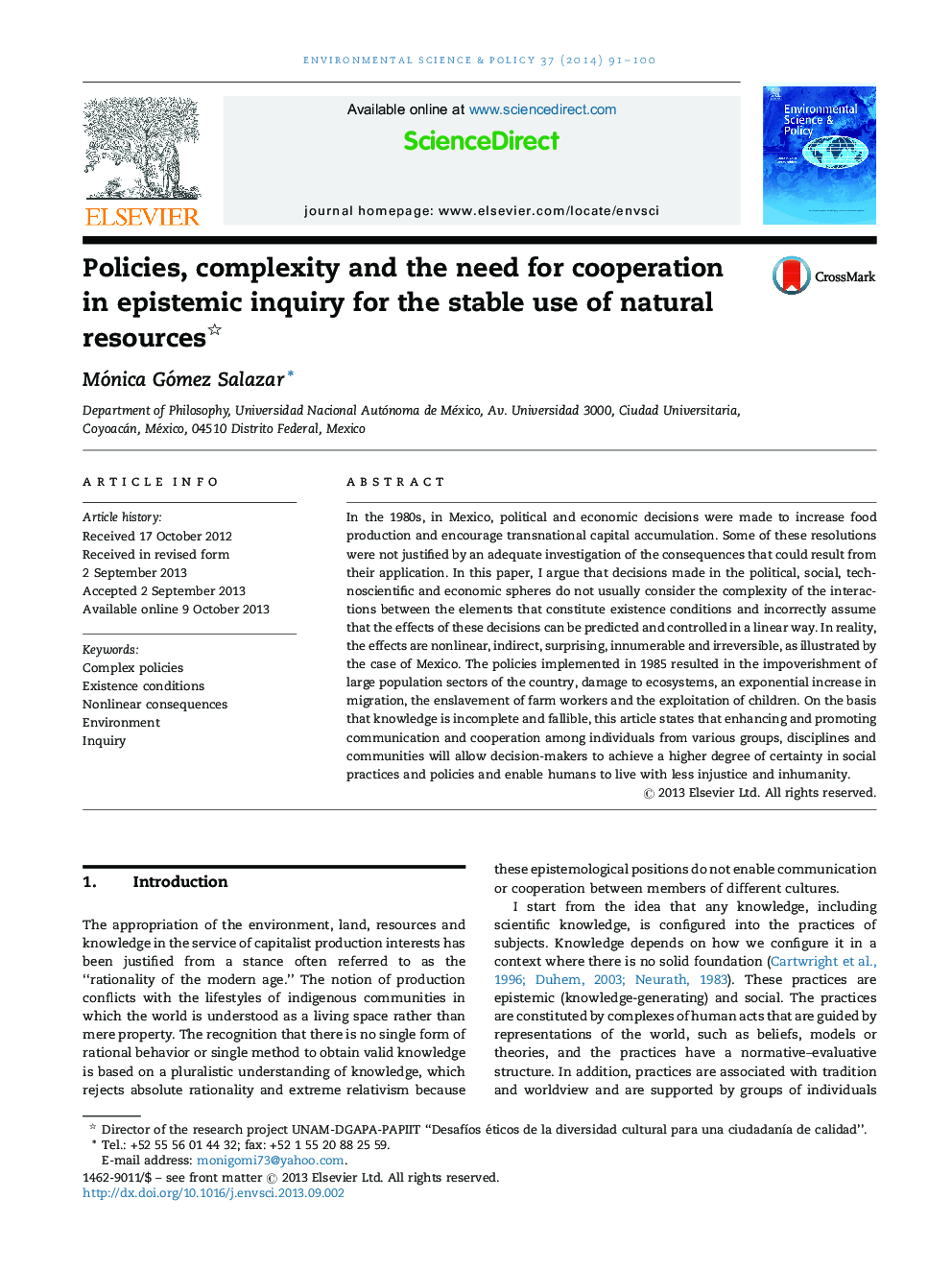| Article ID | Journal | Published Year | Pages | File Type |
|---|---|---|---|---|
| 7468031 | Environmental Science & Policy | 2014 | 10 Pages |
Abstract
In the 1980s, in Mexico, political and economic decisions were made to increase food production and encourage transnational capital accumulation. Some of these resolutions were not justified by an adequate investigation of the consequences that could result from their application. In this paper, I argue that decisions made in the political, social, technoscientific and economic spheres do not usually consider the complexity of the interactions between the elements that constitute existence conditions and incorrectly assume that the effects of these decisions can be predicted and controlled in a linear way. In reality, the effects are nonlinear, indirect, surprising, innumerable and irreversible, as illustrated by the case of Mexico. The policies implemented in 1985 resulted in the impoverishment of large population sectors of the country, damage to ecosystems, an exponential increase in migration, the enslavement of farm workers and the exploitation of children. On the basis that knowledge is incomplete and fallible, this article states that enhancing and promoting communication and cooperation among individuals from various groups, disciplines and communities will allow decision-makers to achieve a higher degree of certainty in social practices and policies and enable humans to live with less injustice and inhumanity.
Related Topics
Physical Sciences and Engineering
Energy
Renewable Energy, Sustainability and the Environment
Authors
Mónica Gómez Salazar,
